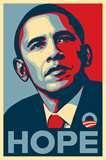JTFriend
Member
- Messages
- 219
It may have not escalated to a full-blown actual war with armed forces, but I have most definitely lived and breathed the "city versus country" conflict John describes which as I explained in my post became an apparent issue for me in 2004-2005 and has only escalated since then.Sorry but being bullied growing up in no way could be considered civil war or even growing unrest in the country. I have heard talks of civil war by some but nothing even close to civil war has come to pass in the last 10 years.

